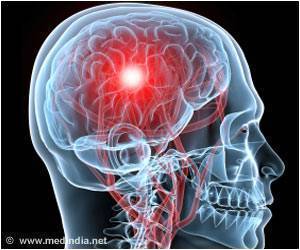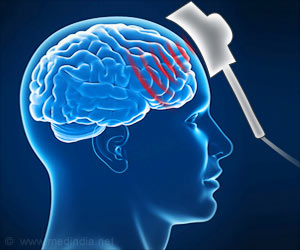Seventeen lifestyle-related risk factors for stroke, dementia, and depression have been identified, providing practical ways to safeguard brain health with age.
- 17 risk factors are linked to stroke, dementia, and depression
- High blood pressure and kidney disease have the biggest impact
- Physical activity and cognitive engagement help lower disease risks
Modifiable risk factors for stroke, dementia and late-life depression: a systematic review and DALY-weighted risk factors for a composite outcome
Go to source). As we age, conditions like stroke, dementia, and late-life depression become more prevalent, presenting challenges to our health and well-being. However, research shows that making certain lifestyle changes can help lower the risk of these debilitating brain diseases.
Dr. Sanjula Singh, senior author and principal investigator at the Brain Care Labs at Massachusetts General Hospital (MGH), emphasized that people can take various steps to protect themselves from these diseases by addressing modifiable risk factors. The study highlights that lifestyle changes can have a broad impact, helping reduce the likelihood of developing multiple age-related brain conditions at once.
#stroke, #dementia, and late-life #depression often go hand in hand-sharing key risk factors like high #blood_pressure and #kidney disease. Staying active, both physically and mentally, may help lower the risk.’
Identifying Shared Modifiable Risk Factors
The research team conducted a thorough review of existing scientific literature to find meta-analyses of risk factors linked to stroke, dementia, and late-life depression. They then combined these findings to pinpoint modifiable risk factors shared by at least two of the three diseases conditions. The goal was to identify risk factors that could be altered through behavioral changes, such as improving diet or increasing physical activity. Additionally, the researchers assessed the relative impact of each identified risk factor on quality of life and premature death, providing valuable insights into prevention strategies.High Blood Pressure and Kidney Disease: Major Risk Factors
From this extensive analysis, the researchers identified 17 shared risk factors, including alcohol use, blood pressure, body mass index, fasting plasma glucose, total cholesterol, leisure time cognitive activity, depressive symptoms, diet, hearing loss, kidney function, pain, physical activity, purpose in life, sleep, smoking, social engagement, and stress. High blood pressure and severe kidney disease were found to have the most significant impact on the development and progression of these diseases. On the other hand, engaging in physical activities and cognitive leisure activities like puzzles was associated with a reduced risk of developing these conditions. However, the researchers noted that the association might be more symptomatic than causal, as individuals with existing brain diseases may be less likely to participate in such activities.Connection Between Dementia, Stroke, and Depression
Dementia, stroke, and late-life depression often occur together, with one condition increasing the likelihood of developing another. According to Dr. Jasper Senff, the first author of the study, this interconnectedness means that preventing or reducing one disease could lower the risk of the others. Since these conditions share overlapping risk factors, taking preventive measures could lead to a collective reduction in the burden of age-related brain diseases. This interconnected approach to prevention offers a promising strategy for improving public health and reducing the overall impact of these conditions.Brain Care Score: A Tool for Measuring and Improving Brain Health
Building on their findings, the researchers at Mass General Brigham developed the Brain Care Score, a tool designed to assess an individual’s efforts to protect brain health. This score helps individuals track their lifestyle changes and offers personalized recommendations for improvement. The tool has been updated to incorporate the latest scientific findings, allowing for more accurate and effective guidance on maintaining brain health. The researchers also call for further studies to explore modifiable risk factors for late-life depression specifically and advocate for randomized controlled trials to test interventions using the Brain Care Score.Dr. Jonathan Rosand, founder of the Global Brain Care Coalition and a key researcher in the study, emphasized that while healthcare is becoming more complex, the findings from this research show that preventing brain diseases can be simple. Many common diseases share similar risk factors, and by addressing these factors, individuals can significantly reduce their risk of developing age-related brain conditions.
In conclusion, the study stresses the importance of focusing on to protect brain health as we age. By addressing common risk factors, such as high blood pressure, kidney disease, and poor lifestyle choices, we can lower the chances of developing stroke, dementia, or late-life depression. The development of tools like the Brain Care Score offers an easy way for individuals to measure their progress and make improvements.
Reference:
- Modifiable risk factors for stroke, dementia and late-life depression: a systematic review and DALY-weighted risk factors for a composite outcome - (https://www.broadinstitute.org/publications/broad1362871)
Source-Medindia















